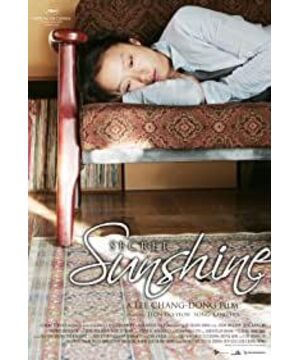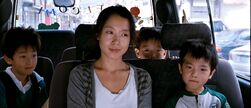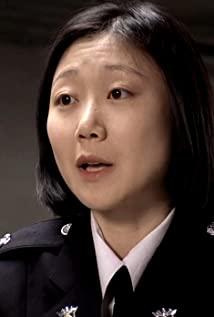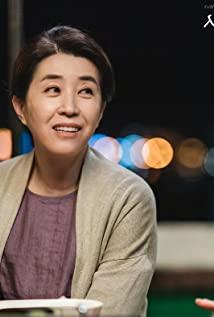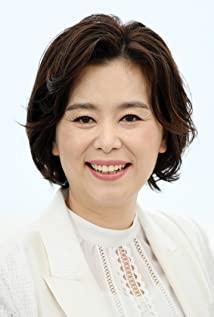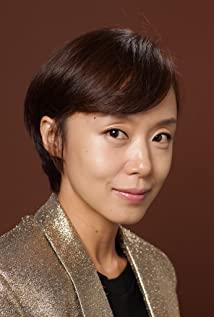Li Cangdong's "Miyang", I think the theme he expressed is: how terrifying is a small, backward and closed city. This is also a vague feeling when watching "Oasis". The expression in this part is more thorough. However, he intentionally hid this expression behind a main contradiction in both films. "Oasis" is the main contradiction of the sexual power of the disabled, and "Miyang" is the main contradiction between the Christian mission and the destruction of the believers' beliefs.
The characteristics of the backward and closed town seem to have been studied by many people in sociology. Generally speaking, the people and people here have no secrets. People grew up in one place and never left. Therefore, my eyesight is short-sighted, my daily life is boring, and there is no spiritual life. When we get together, we are the parents. They always try to interfere with the lives of others and their own lives are also interfered. An "outsider" must be extra careful when coming to such a place, because all the rules of the outside world no longer apply here. People from outside come here, just as a plump lamb walks into a net of heaven and earth laid by a local. This theme is also expressed in "Straw Dog" and "Killing No One Left".
Lee Shin-ae came to Miryang with a heart of healing. In her heart, Seoul is a metropolis with a lot of pressure in life and apathy. According to the following plot, we can add some clues: her husband, a man from the small place of Miryang Phoenix man fought hard in Seoul and established her own company. She was born in Seoul and married Phoenix man because of love despite the opposition of her family. Later, he died in a car accident, and the pressure she was under can be imagined. So the seller left Seoul with his son and went to Miryang, the hometown of her husband, a paradise that he would never forget when he was tired in Seoul. With such beautiful imagination, she came to Miryang. But Miyang is not as beautiful as she thought, with simple folk customs and outstanding people. On the contrary, the economy here is backward, all industries are dying, the signs on the streets are unbearable, and entertainment basically depends on drinking, gossip and karaoke. People have no aesthetics at all, life is hard and numb. Lu Xun should be the first writer to face his hometown squarely. In fact, his childhood hometown will most likely become this scene after a person grows up and leaves to see the outside world. (Maybe except for Shen Congwen's hometown). But she hasn't recovered from the sorrow of losing her husband, thinking that it is always a quiet place where no one knows where she can start again.
Because she didn't know how to survive in such a small place, she accidentally revealed her wealth (investment in real estate), and soon her miserable life was worsened, and her son was kidnapped and killed by the teacher (perhaps because he saw the teacher's face). Desperate, she converted to religion. It is easiest for people to join religious organizations when they are sad and unable to let go, because that is the most vulnerable moment for people. The collective life of religious organizations can not only divert attention, make sadness disappear over time, but also provide collective warmth, making vulnerable people seem like Found a support. There is no problem with religion itself. It is one of the important functions of religion to comfort the sad and desperate. The problem is that this is a Christian organization that closes a small town. Lee Shin-ae used her background in Seoul to become a church. At first, her suspicion of religion was the suspicion that ordinary people would have. The preacher told her: Look at that beam of sunlight, and God is in that beam of light. She asked: Since God is so all-knowing and omnipotent, why should my son die? What's the sin for my son so young? The preacher could not answer, but said: God has his own arrangements.
Religion has many functions, and it is not clear in one or two sentences. I have no intention of discussing it in this article. However, in places like Miyang, the function of religion is more expressed as "opium to paralyze the people" (Marxian). People use religion to end their grief and dissatisfaction, and receive care and warmth in the collective, deceiving themselves to live hard and numbly in this kind of place. But Li Shenai is different. She can't be satisfied with the role of opium. She hopes that all of this is true (the kingdom of heaven really exists, and God is really in a beam of sunshine), and she is sincerely devoted. Her sense of religion is better than any other locals. People are all advanced, so she offered to go to the labor camp to forgive the murderer of his son--even the pastor’s first reaction after hearing about it was shocked (I rely on it, don’t you, are you serious? Just believe it and lie to yourself? Okay, why take it so seriously? Seriously, you will suffer!), but they still accompanied her. She went to the cell and saw the murderer appearing in front of her with a smooth skin and graceful expression, telling her, because of me Believing in God and praying every day, God has forgiven me and forgiven my sins. Her faith collapsed at that moment: I haven't forgiven the murderer yet, why God has forgiven him! (Of course, her understanding of religion is also wrong. God did not forgive the murderer, he would still go to hell, but he could live a better life by deceiving himself). Others did not want to and would not destroy their own "belief" (the false happiness and satisfaction that they had established). Only Li Shenai started her own exploration. She wanted to fight against God and first tempted the pastor to have a relationship with her. I really feel that God is watching him and can’t force it.) Later he self-harmed and was finally sent to a mental hospital. After being discharged from the hospital, she said goodbye to God and reconciled her destiny. In the last shot, she cut her hair in front of the mirror, and the picture fell in the messy and deserted corner of the courtyard--just like life in Miyang. Maybe she had to convert to this kind of life, maybe she would choose to return to Seoul to start a new life. The director here did not make it clear. My understanding is that she will leave because she saw the murderer’s daughter in the barbershop. After losing her father when she was a rebellious teenage girl, her life was even worse. She was bullied, possibly bullied, and finally entered. She has already joined the miserable life of the Miyang people early in the junior management office and learned how to cut her hair. I think Li Shenai’s crying and angry leaving were not based on the anger of her father killing her son, but the fate of the people here. With the anger of life, I feel sad for this girl.
Particularly worth mentioning is this character played by Song Kanghao. He is a representative of Miyang people. He is bullying and afraid of hardship, but he is still kind in heart. Therefore, he is actually a bit marginalized in the local area. The casting of other characters is also very impressive. Like the Chinese who appeared in Zhang Yimou's early films, he is weather-beaten, ignorant and persistent. Hard and numb, and extremely excited about religious activities, they are just the believers who need to capture the localization of Christianity. They don't really understand the doctrine. For them, they will first have some specific benefits. Joining the organization will feel more secure. Secondly, church activities are the only spiritual comfort for their poor daily life. Lee Cangdong was the Minister of Culture of South Korea. In fact, several of his films are in fact reflecting the dark side of South Korea, the ignorant and backward national culture and national spirit. His shots are very good, both artistic and critical. Is South Korea really hurt because of his criticism? On the contrary, in recent years, thanks to the efforts of these directors and other cultural workers, the Korean culture with creative freedom has made great progress in songs, variety shows, movies and TV dramas or movies. Achievements are remarkable.
View more about Secret Sunshine reviews


